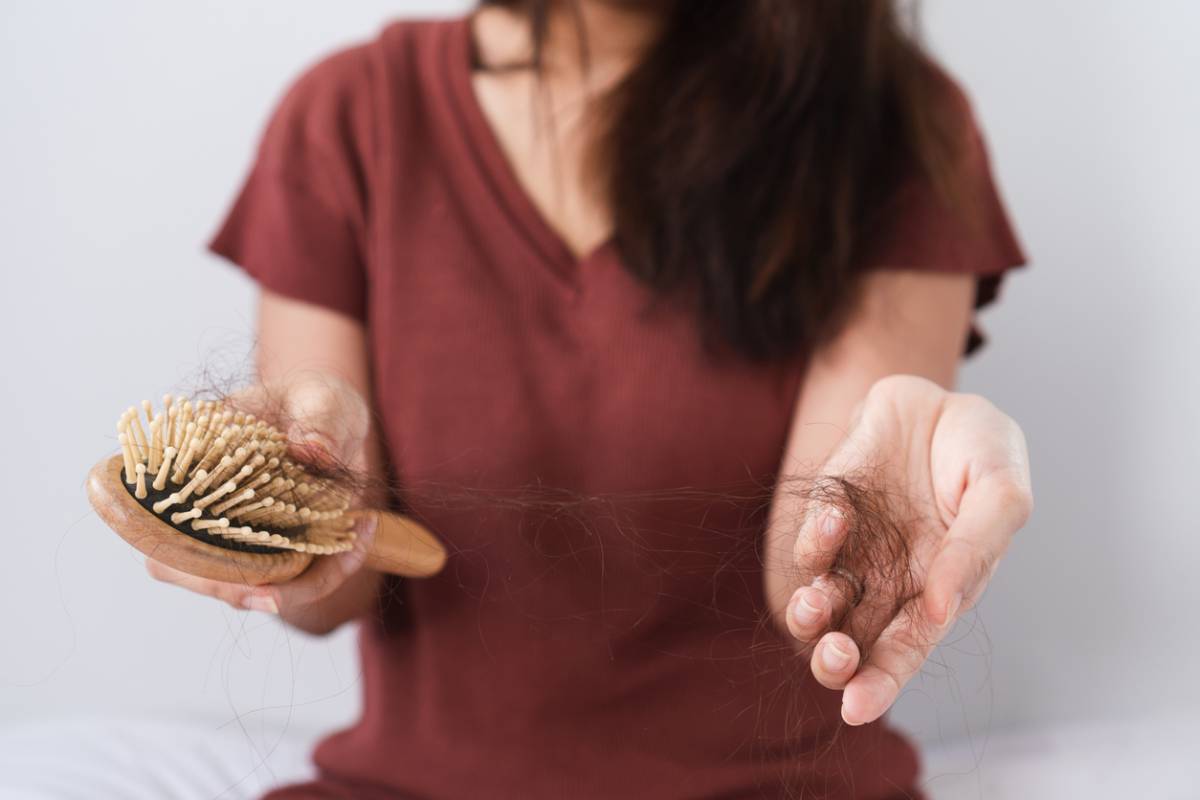Stress has a number of negative effects on the body, and hair loss is sometimes one of them. The good news is that this hair loss doesn’t have to be permanent. By identifying the cause, treating the associated conditions, and giving your hair the care it needs, you can stop and even reverse your hair loss in many cases. Unfortunately, there are some situations where the loss isn’t fully reversible, but that’s what your Houston hair restoration specialists are there for. Now, are you losing hair from stress?
Are You Losing Hair From Stress?
There are a number of life events that cause enough stress to trigger hair loss. Pregnancy, the loss of a loved one, chronic illness, divorce, and serious financial issues are all capable of causing hair loss. Your sudden hair loss may also result from a poor diet or the result of specific medications, including a few antidepressants. Usually, the cause is apparent once you discuss your recent history with a professional. But occasionally, situations may require a bit more investigation.
For the most part, these events do not cause the development of further conditions. However, it is always best to treat the root cause as early as possible. If you’re experiencing hair loss, talk to your doctor and schedule an appointment with a qualified therapist. Together you can take several steps to stabilize your mental health. These include:
- Improving your diet
- Switching up your medications where necessary
- Pursuing quality of life improvements
If the problem persists, your doctor will investigate other possible conditions typically associated with stress-related hair loss.
Treating the Associated Condition(s)
There are two primary conditions associated with stress-related hair loss.
- Telogen Effluvium is the most common condition linked to stress-related hair loss. When a person has this condition, their hair follicles are forced into the resting phase by the body’s chemical reaction to stress. That means that the affected follicles are not actively re-growing hair once the old strand has fallen out. People with telogen effluvium are more likely to experience gradual hair loss over time. And the condition is usually completely reversible.
- Trichotillomania is a psychological condition that is most common in teenage girls. Patients with trichotillomania impulsively pull out their own hair whenever they feel tense or stressed. Scientists suggest that the condition may be a response to trauma or extreme anxiety. If the affected person is treated early and provided with healthier coping mechanisms, the effects can be reversed. Unfortunately, long-term trichotillomania can permanently damage the hair follicles and lead to permanent baldness in the most affected areas.
Restoring What You’ve Lost
Hair loss can be difficult to deal with on a day-to-day basis. There are plenty of people who look great without hair, but it isn’t the choice for everyone. If you have experienced permanent hair loss and want the chance to have your natural hair back, then consider having a hair transplant in Houston. The procedure has advanced by leaps and bounds over just the past few years, and you’ll be shocked to see the results that can now be achieved.
By using a Neograft-assisted follicular unit extraction procedure, Dr. Cain Linville can transport healthy follicles from other parts of your head to the permanently bald areas. The placement of individual follicles means that the minimal scarring is practically impossible to see once your new hair has grown in. There are no long scar lines and no hair plugs, just your natural hair growing from your own hair follicles. You’ll have to be patient for the first few months, but once you’re healed, you’ll have hair you can cut and style as you like.


